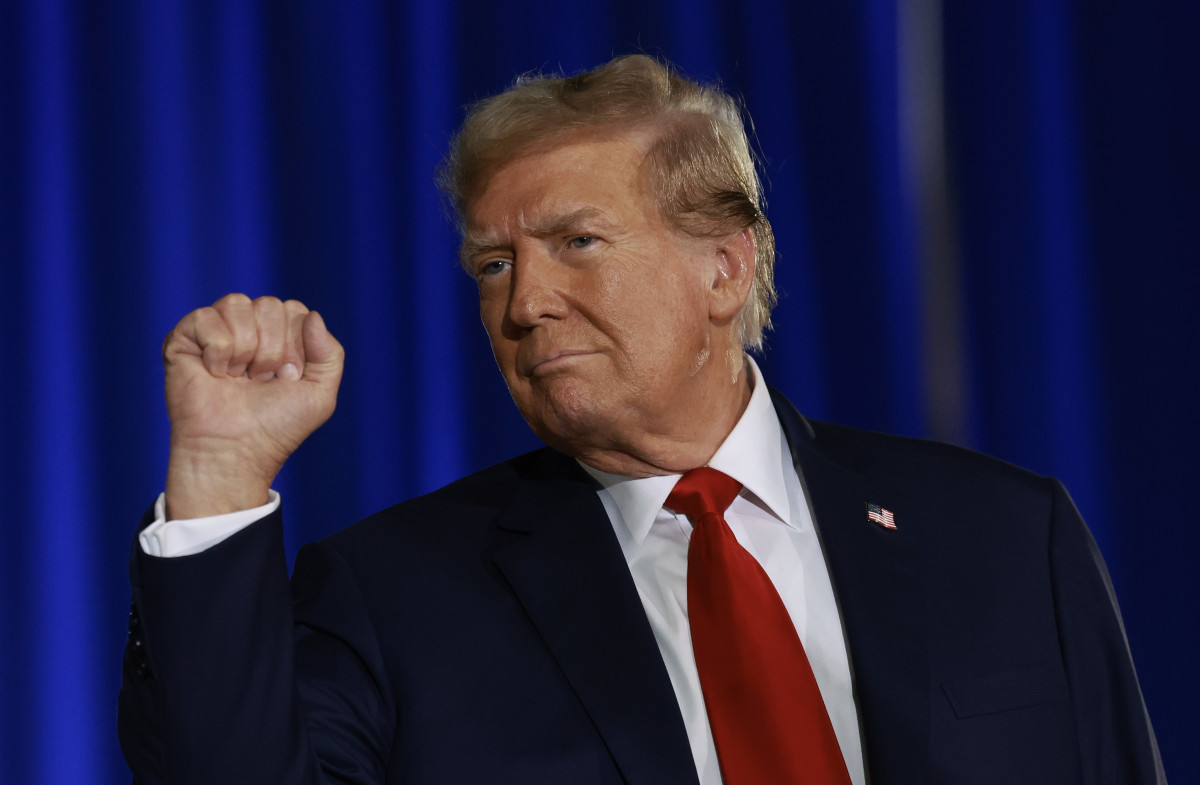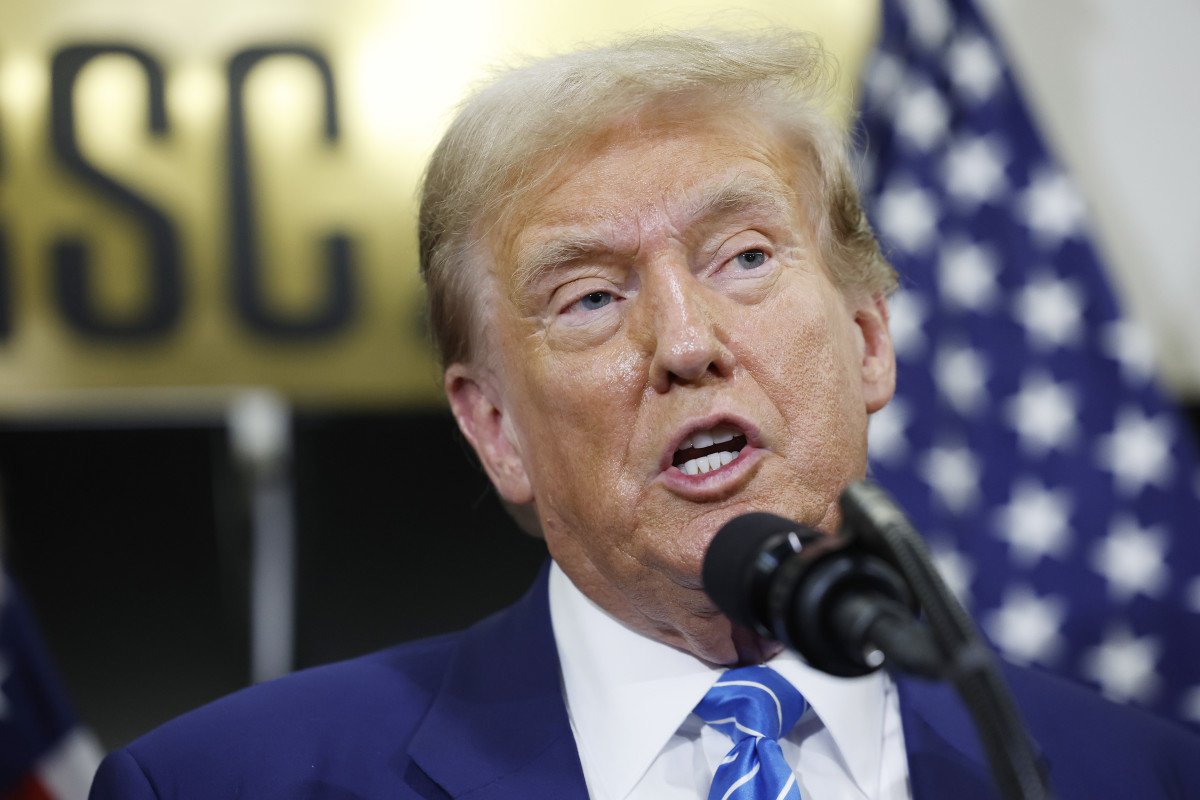
With the U.S. presidential election just months away, the war of words between incumbent President Joe Biden and Republican challenger, former President Donald Trump, are heating up.
As the duo goes tit-for-tat, exchanging and refuting views on a wide variety of issues affecting everyday Americans, President Trump promised his most ardent supporters that a controversial Biden administration policy would see the sunset once he sits down at the Oval Office.
Related: Ford ends controversial EV program, shocking dealers

As per a recent report by Bloomberg, Trump is continuing his political tirade targeting one of the Biden administration's green policies.
At a private event attended by lawmakers at the Capitol Hill Club in Washington D.C. late last week, the former president spoke out against Biden's policies regarding electric vehicles and made it clear that he is intent on reversing them once in office.
Speaking to Bloomberg, Representative Russ Fulcher (R-ID), noted that Trump told those in attendance that "the whole mandate toward battery and electric is crazy," adding that he plans on taking action against the EV policy once in the White House.
“He said the policy would be entirely reversed,” Fulcher said. “He made it very, very clear that he’s opposed to the policies we’ve got.”

Trump seeks to reverse newly revised EPA rules that were unveiled in March, which were made looser in comparison to those unveiled in 2023. Under the revised rules, the administration is targeting at least 56% of new vehicle sales to be EVs by 2032, a figure that has been reduced from nearly 67% the precious year.
In order to achieve those targets, the administration has been encouraging EV growth by investing in charging infrastructure, and giving away more than a billion dollars in EV and plug-in federal tax incentives through the Inflation Reduction Act. However, any target percentage regarding electric vehicles is too high for the former President.
Another attendee of the meeting, Representative Morgan Griffith (R-Va.), noted that Trump complained that through his policies, Biden was forcing people to buy EVs.
“He said that was crazy,” Griffith said. “He’s going to do something about it.”
More Business of EVs:
- New study suggests EVs are supercharging an impending environmental crisis
- GM President has bold plans for an iconic sports car's EV resurrection
- Ford CEO says this iconic model will "never" be an EV
Related: Jay Leno shuts down EV skeptics in recent podcast appearance
The dirty secret in Biden's "EV mandate"

While the former president rails on about Biden's EV policies, a new report produced by Reuters analyzed the real-world effects of the EPA's revised so-called "EV mandate," and found a huge loophole that automakers could use to comply with the government's rules.
In a recent report, Reuters looked into the revised EPA EV rule changes in March, which requires 56% of new cars sold by automakers in 2032 to be have to be electric. In order to get there, automakers could comply with the target by producing more plug-in hybrid cars.
These vehicles, which run on a combination of both gasoline and electric power, are a popular option for U.S. consumers. They are currently offered in "inefficient vehicles," including big, gas-guzzling SUVs like Stellantis (STLA) brand Jeep Grand Cherokee and Wrangler 4xe models and the Range Rover, however data pulled from researchers and California regulators find that their true emissions are about 25% to 75% higher than what the EPA claims.

As per Reuters, the EPA relies on a formula that assumes that plug-in owners charge their cars at EV charging stations more than they actually do in real life; in turn, plug-in drivers rely on their plug-in's gas-powered engine for most of the time they actually drive them.
By allowing this provision, Reuters found that under the revised rules, the average-per-mile carbon emissions of cars and light trucks to be 14% higher between 2027 and 2032 than in the previous ruling.
In the original proposal that called for two-thirds of cars sold in the U.S. to be EVs in 2023, the EPA proposed replacing the now 14-year old formula for plug-in hybrid emissions with a new one that is "determined from real world data" on charging, but were pressured by automakers to keep it until 2031, noting that a more restrictive formula would stifle plug-in innovation.
Related: Veteran fund manager picks favorite stocks for 2024







